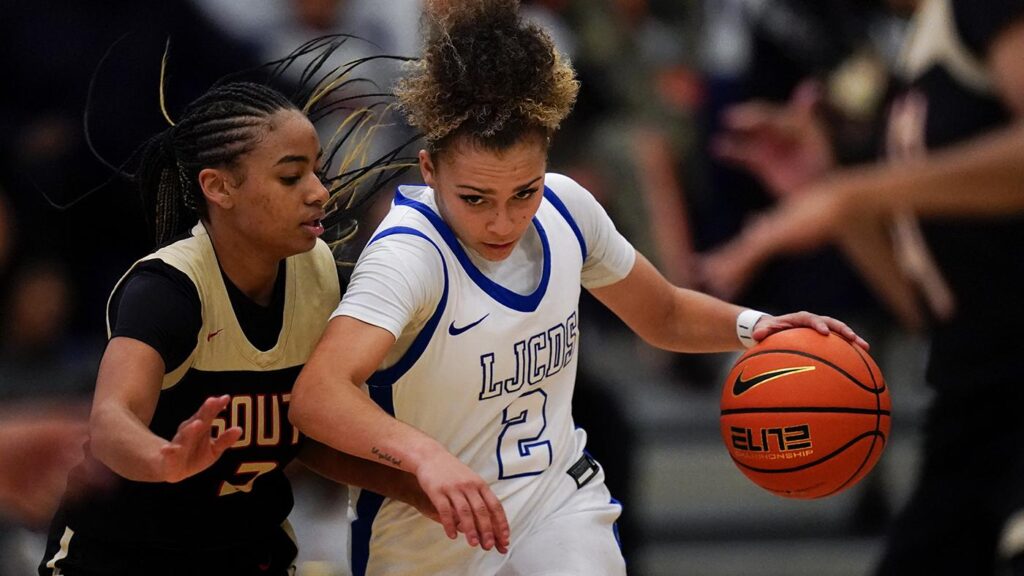As high school athletes gear up for thier transitional leap into collegiate sports, the demands they will face are set to increase exponentially. Navigating this shift requires more than just skill on the field; it necessitates mental fortitude, discipline, and a complete understanding of the rigorous expectations that lie ahead. At El Camino College, where athletic programs thrive alongside academic excellence, preparations are being made to ensure that young athletes are not only prepared for competition but also equipped to balance their dual roles as students and sports competitors.This article delves into the critical steps high school athletes must undertake to be successful at the college level, examining the necessary physical training, mental conditioning, and support systems that can help ease this significant transition.
Importance of Mental Resilience in College Sports
Mental resilience plays a crucial role in helping college athletes navigate the demanding landscape of higher-level sports. In a competitive environment, where pressure can come from various directions—coaches, peers, and personal expectations—athletes must cultivate a solid mental framework.This resilience enables them to bounce back from setbacks, cope with performance anxiety, and maintain focus during intense competition.The ability to mentally adapt can be the difference between athletes who thrive under challenging circumstances and those who struggle to keep pace with rigorous training and competition.
Developing mental toughness is not just about being able to withstand pressure; it also involves strengthening emotional intelligence and honing coping strategies. Here are some vital aspects that contribute to mental resilience:
- Self-Awareness: Understanding strengths and weaknesses fosters a growth mindset.
- Goal setting: Establishing realistic and measurable objectives can boost motivation.
- Stress Management: Techniques like mindfulness and breathing exercises help athletes maintain composure.
- Support Systems: Connections with coaches, teammates, and mental health professionals provide essential encouragement.
To illustrate the impact of mental resilience versus mental fatigue, consider the comparison below:
| Mental Resilience | Mental Fatigue |
|---|---|
| Quick recovery from defeats | Prolonged impact from losses |
| High levels of focus during games | Difficulty concentrating |
| Effective communication with team | Isolation and withdrawal |
| Adaptability to new strategies | Resistance to change |
Balancing Academics and Athletics for Long-term Success
In the realm of high school sports, athletes often face the formidable challenge of balancing rigorous academic schedules with demanding training regimens. this delicate equilibrium is essential, as it not only prepares them for the accelerated pace of college athletics but also lays the groundwork for lifelong skills. To excel in both domains, student-athletes should adopt a structured approach that includes:
- Time Management: Prioritizing tasks and setting clear schedules can help athletes allocate time effectively between studies and practices.
- Goal Setting: Establishing achievable short-term and long-term goals fosters motivation and provides focus,ensuring that neither academics nor athletics are neglected.
- Seeking Support: Utilizing tutors, teachers, and coaches as resources can bridge gaps in understanding and enhance performance across the board.
Academic performance remains a priority even for those destined to thrive in sports. Athletic programs at the collegiate level often scrutinize academic capabilities alongside athletic prowess, making it crucial for young athletes to maintain strong grades. Here is a glimpse of how academic performance can impact athletic opportunities:
| GPA range | Potential Athletic Opportunities |
|---|---|
| 3.5 – 4.0 | Scholarship offers from top-tier colleges |
| 3.0 – 3.49 | Competitive programs, potential for financial aid |
| 2.5 – 2.99 | Limited options, focus on improving grades |
| Below 2.5 | Challenges in recruitment, emphasis on academics needed |
Effective Training Regimens to Meet Higher Expectations
As high school athletes transition to college sports, they must adopt training regimens that are not only rigorous but also tailored to the demands of higher competition.This involves a comprehensive approach that combines physical conditioning, technical skills, and mental toughness. Key components of an effective training plan include:
- Strength Training: Focus on building core strength and muscle endurance through weight lifting and resistance exercises.
- Cardiovascular Endurance: Incorporate running, swimming, or cycling to enhance stamina and recovery.
- Sport-Specific Drills: Regular practise of sport-specific skills to refine techniques and strategies.
- Nutrition: Maintain a balanced diet rich in proteins, carbohydrates, and essential vitamins to support training and recovery.
- Rest and Recovery: Prioritize sleep and active recovery days to prevent injury and promote optimal performance.
Monitoring progress is crucial to ensure that athletes are meeting their training goals and adjusting as needed. A performance tracking system can help identify strengths and areas for improvement. This could include:
| Training Aspect | Measurement Criteria |
|---|---|
| strength | Max Lift Weights |
| Endurance | Run Time for 5K |
| Skill Competence | Accuracy in drills |
| Nutrition | Daily Caloric Intake |
| mental Resilience | Mental Toughness Ratings |
in today’s athletic landscape, merely participating in practice is insufficient; a strategic, data-driven training regimen prepares athletes for the competitive intensity they will face at the collegiate level. Taking the time to tailor fitness programs to each individual, while also focusing on comprehensive progress, sets the foundation for the next chapter in their athletic careers.
Building Support Networks to Navigate the Transition to College Sports
Transitioning to college sports can be a challenging experience for high school athletes. Building a robust support network is essential for navigating this new chapter.Key components of a strong support system include:
- Mentorship: Connecting with former athletes or coaches who have successfully transitioned can provide invaluable insights and guidance.
- Team Support: Establishing strong relationships with teammates fosters camaraderie and enables athletes to share their experiences and challenges.
- Family Engagement: Keeping family informed and involved can provide emotional backing and help athletes manage their time effectively.
- Academic Advisors: Collaborating with academic advisors can ensure that athletes stay on track with their studies, balancing academics and athletics smoothly.
To better illustrate the benefits of a solid support network, consider the different roles that individuals play in an athlete’s journey:
| Support Role | Key Contributions |
|---|---|
| Mentor | provides advice and shares personal experiences of college sports life |
| Teammate | encourages teamwork, resilience, and mutual support during training and competitions |
| Family Member | Offers unconditional emotional support and helps manage stress |
| Advisor | Guides academic progress, offers resources, and facilitates connections |
Future Outlook
As high school athletes transition into college sports, the demands intensify, requiring not only physical prowess but also mental resilience and academic discipline. Institutions like El Camino College are keenly aware of the unique challenges that these young athletes face. By fostering a supportive environment that emphasizes both athletic and academic excellence, programs can equip students with the necessary tools to thrive. Preparation is key—whether it’s mastering time management, honing skills, or seeking guidance from coaches and mentors. As the landscape of college athletics continues to evolve, it is crucial for high school athletes to embrace this preparatory phase, ensuring they are ready to meet the rigors of college-level sports head-on. The journey ahead may be challenging, but with the right mindset and support, these athletes can rise to the occasion and succeed both on the field and in the classroom.





